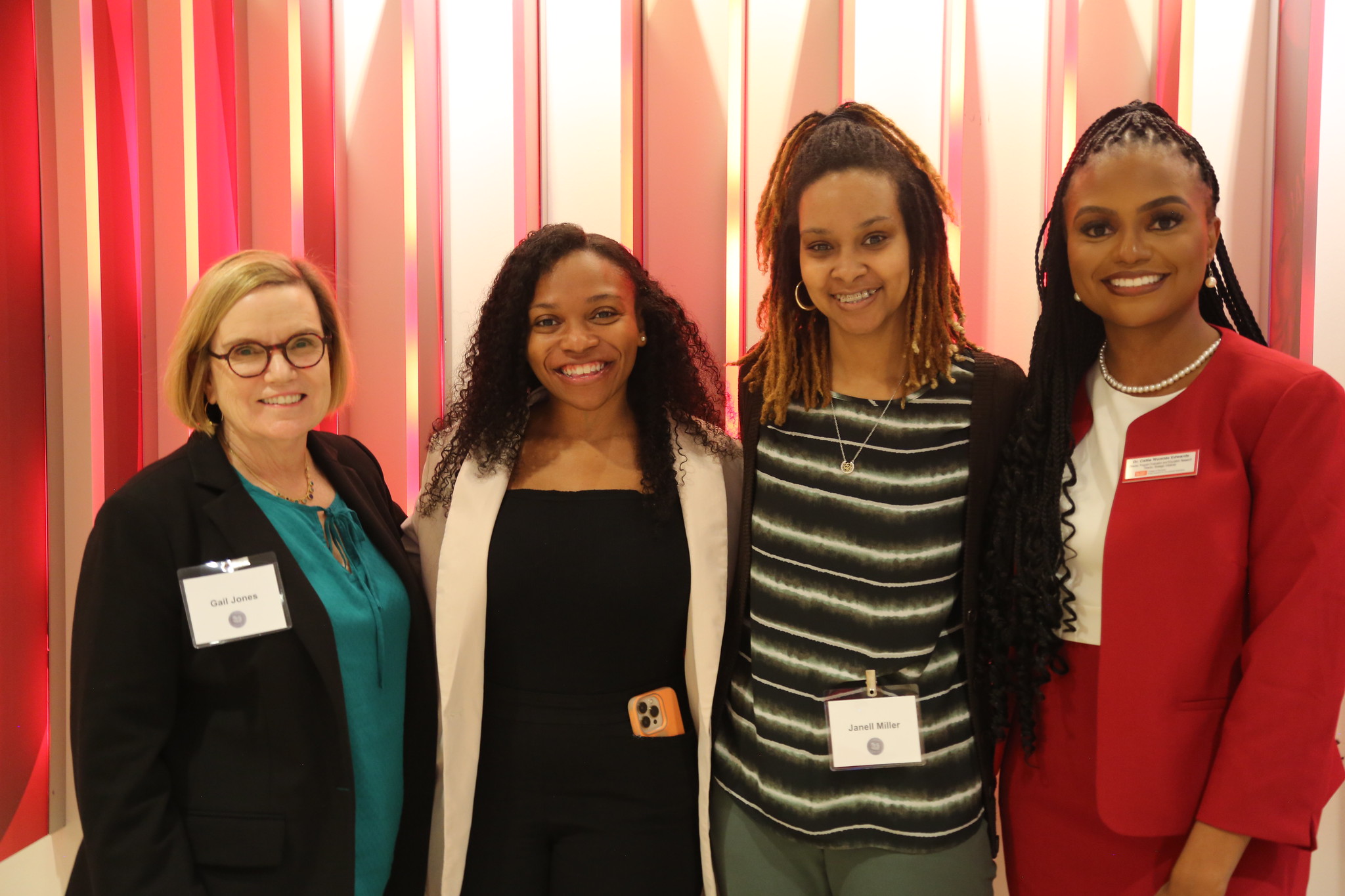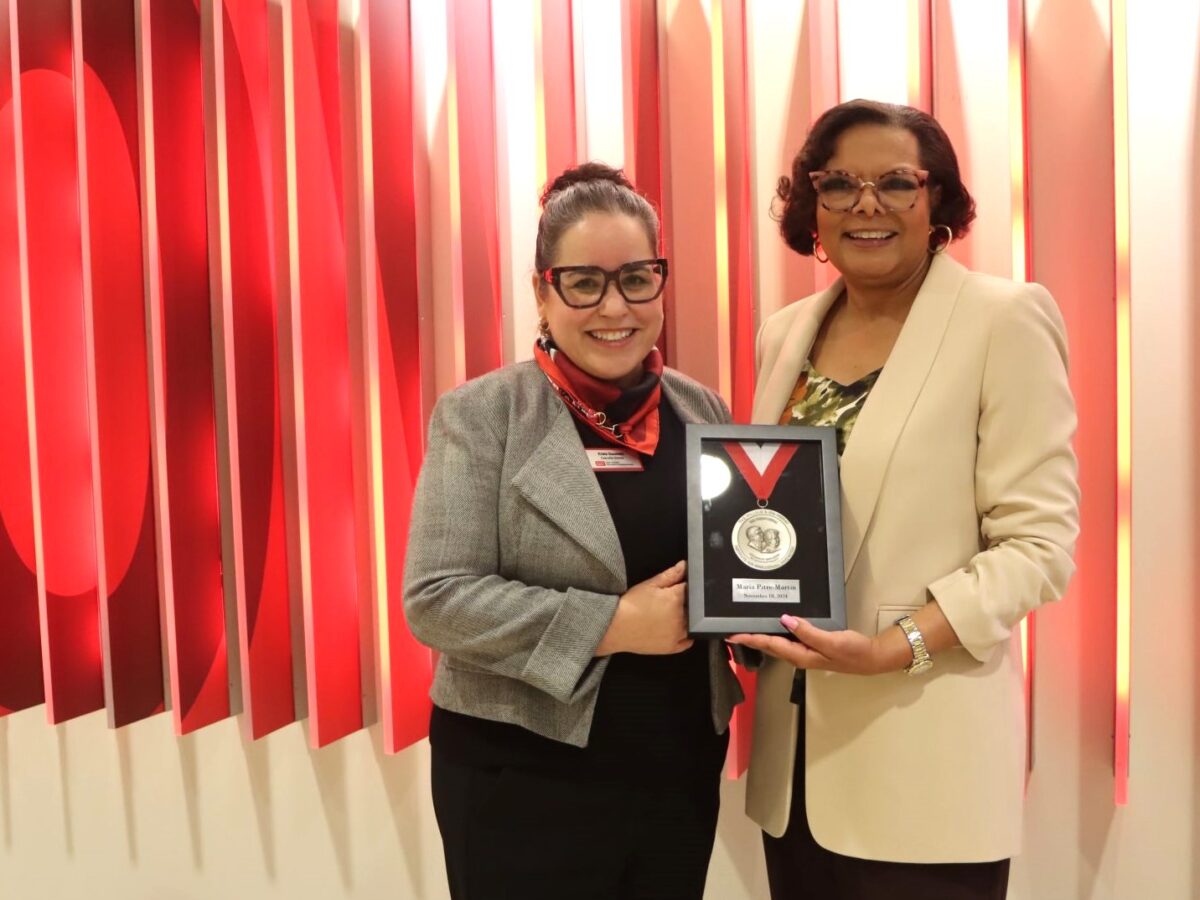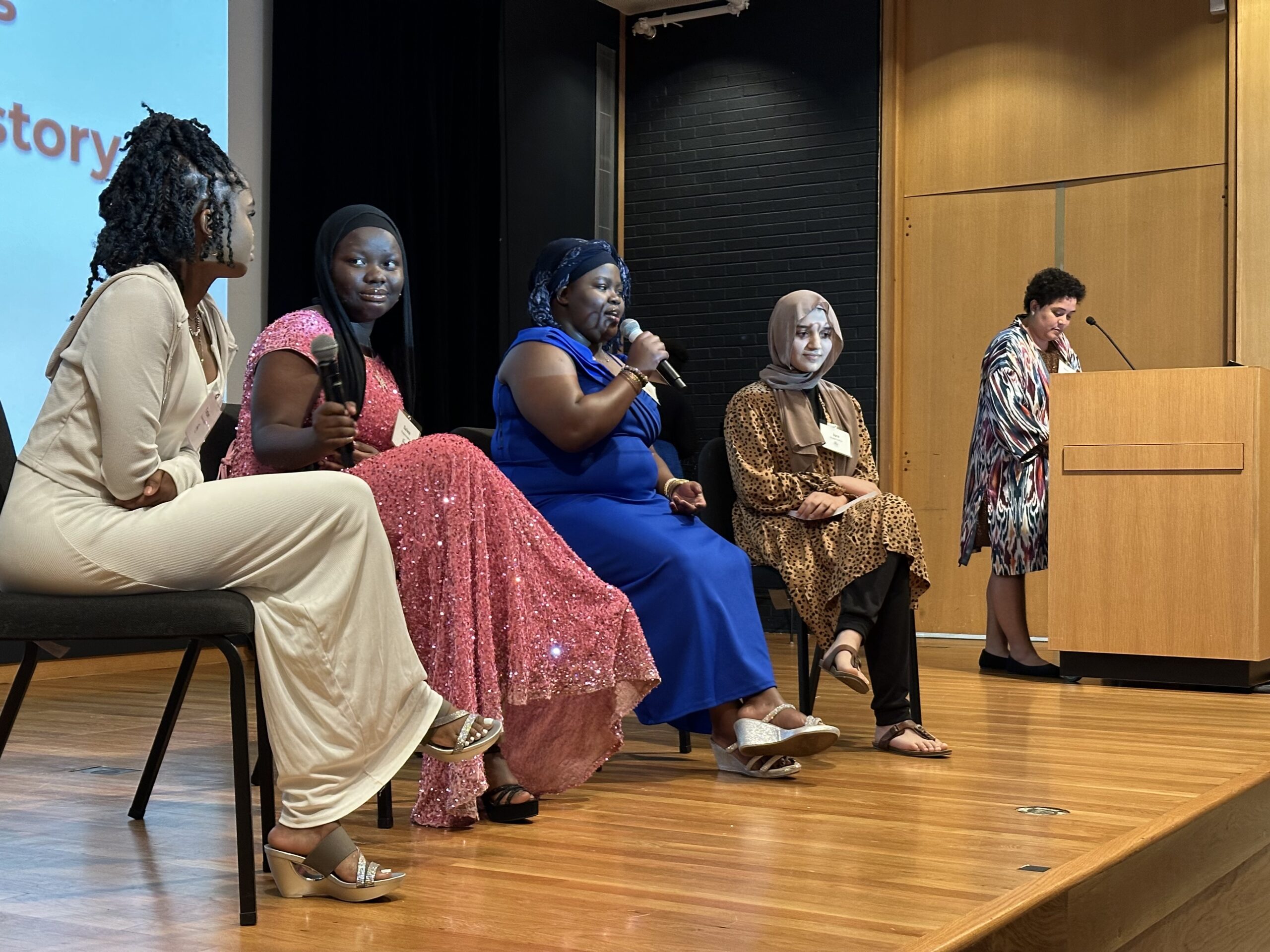Through a Mutually-Beneficial Model, the Friday Institute PEER Group is Making Space for Historically Marginalized Students in Education Research and Evaluation

During the 2020-2021 academic year, departments all over the NC State campus were experiencing staff gaps and unknowns. The Program Evaluation and Education Research (PEER) Group at the Friday Institute for Educational Innovation was not exempt from these gaps, but Callie Edwards would see them as an opportunity to create roles for students from historically marginalized communities and expand the team’s capacity.
In 2020, the PEER Group launched an internship program for undergraduate students that allowed student interns to receive training in leadership, educational research and evaluation techniques while contributing to PEER Group projects. The hybrid program was designed to serve students who might not have been exposed to research and evaluation otherwise.
“This was not just a solution to help us with productivity, but also to provide more access and opportunities for students,” said Edwards, associate director of the PEER Group and creator and manager of the internship program.
The PEER Group’s priority is keeping equity at the forefront of the program, which is in alignment with one of the Friday Institute’s focus areas, cultivating equity in education.
“Our goal is to recruit students who have traditionally not had these opportunities or seen professionals in this role,” said Erin Huggins, a research scholar at the Friday Institute. “The overarching goal is to empower them in new ways and give them a skill set they can use later on.”
The PEER internship program is a partnership with the federal work-study program and students must qualify in order to be eligible for the internship.
“This immediately helps us reach a demographic of students who may not have the luxury of having an internship, especially if they are unpaid,” Edwards said.
The internship program staff is also very intentional about their outreach. The group recruits students from all colleges and programs, including TRIO programs, the African American Culture Center and other programs on campus that are designed to serve students from historically marginalized communities.
Eligible students do not have to be education majors; they just have to possess the interest and curiosity to learn more about educational research. Biweekly, the interns receive training on different topics from Friday Institute staff members and invited speakers from all over campus.
Interns work up to 10 hours per week on various projects that can include organizing literature reviews, data entry, building surveys and reports in Qualtrics, coordinating focus groups and supporting data collection.
Helping Interns Develop New Skills
Njogu Ndirangu, a Spring and Fall 2021 intern, said he was having trouble finding a work-study role that was in line with what he wanted to do as a political science major. After becoming an intern and working on several research projects with the PEER team, Ndirangu discovered a new passion for policy and education.“For every literature review that we did, I became more interested in education and how it affects everything,” Ndirangu said. “There are multiple problems that need to be solved and I found this in public administration.” Ndirangu will enroll in NC State’s Master of Public Administration program in Fall 2022. He said he feels equipped to conduct graduate research because of the PEER internship program. “These are skills everyone can learn,” Ndirangu said. “This internship makes good use of your ability as well as helps you to craft and use new skills.” The intern speaker sessions range from professional development topics to the basic skills needed to conduct research.Kita Adams, a 2021 intern and psychology graduate, said a staff member spoke to the interns about policy making and writing, and it made her think deeper about how research impacts the policies being made.“For anyone who has ever been interested in research in general, even if you want to build experience in different fields, the experience is applicable,” she said. Adams said one of her favorite projects in the program was being able to use her Spanish minor to work on translating transcripts for ESL families as a resource.
Bringing Valuable Perspectives to Research
Shaun Kellogg, the senior director of the PEER Group, said the interns have expanded his team’s capacity to do more research and evaluation work. “The internship program has provided us with a pool of really energetic, smart, talented undergraduates that we’ve been able to draw from to support our work on these various projects,” Kellogg said.
[pullquote cite=”Hiller Spires” color=”wolfpackred” align=”alignleft”]I liked the idea that we could mentor at the Friday Institute even though we don’t provide degrees.[/pullquote]
Kellogg said the students have set up surveys, analyzed qualitative and quantitative data, prepared research reports and identified concepts or themes that help to synthesize information.
“They have allowed our research associates, scholars and assistants to focus more on tasks that are a little bit more difficult while taking more routine stuff off their plate,” he said. “It allows them to go deeper.”
The Friday Institute team hopes that the program can serve as a resource for other teams looking to design an internship program for undergraduate students.
“When you design and you’re thoughtful, you really are a model for other groups,” said Hiller Spires, executive director of the Friday Institute and associate dean in the NC State College of Education.
Spires said she invested in the program because she knows the value of mentorship and the difference it can make.
“I liked the idea that we could mentor at the Friday Institute even though we don’t provide degrees,” Spires said.
The students receive mentorship, skills and lessons that can be applied to any field, but they also bring a variety of perspectives to the evaluation process and the research being conducted.
In the next five years, Edwards would love to see the intern program demonstrate more indicators of long-term sustainability, such as developing diverse and strategic partnerships both within and beyond NC State.
“I’d love for us to expand our impact and conduct research about the program with the interns that can be published in academic journals,” she said. “Finally, I’d love for our alumni interns to reflect fondly on their experiences in the program and for our program to be a continued source of support and community for our interns even after they graduate.”



